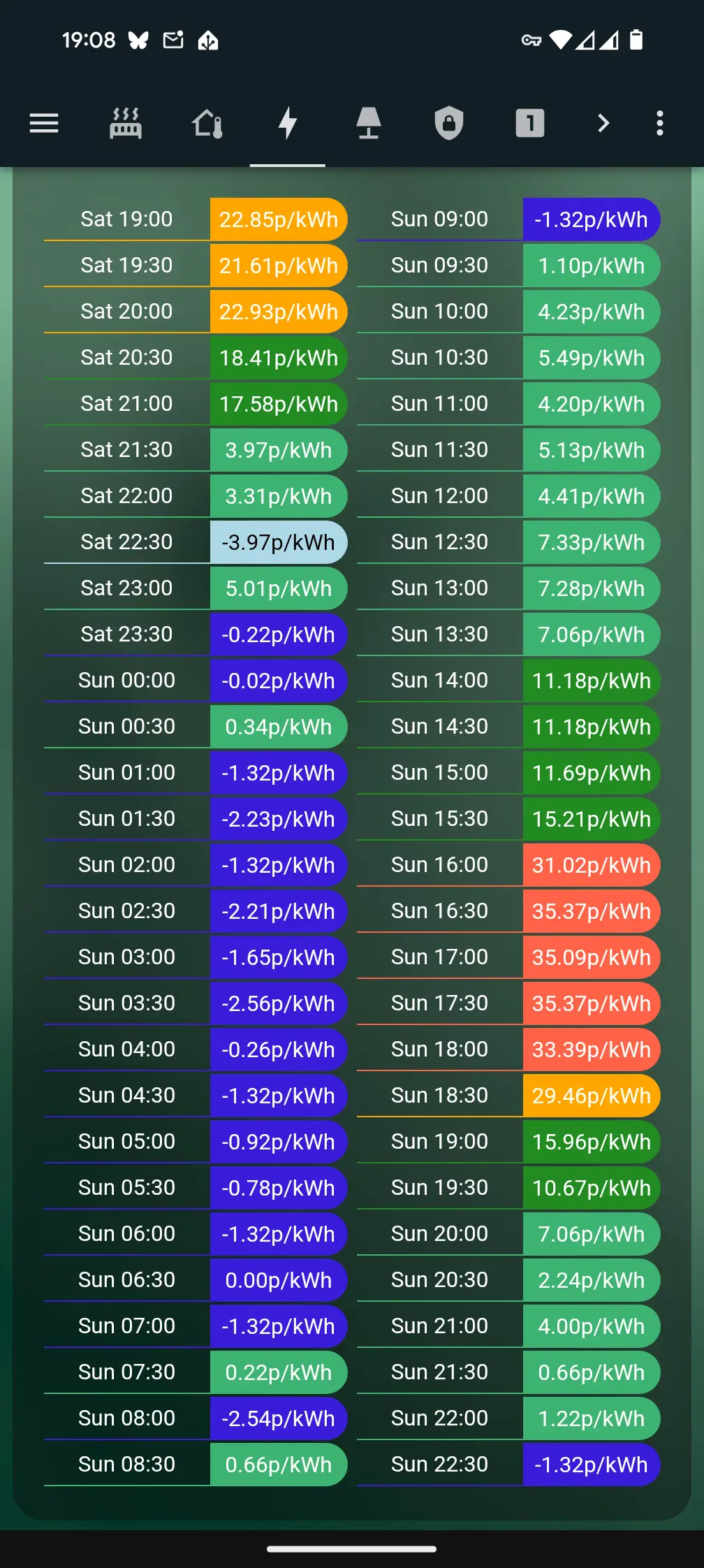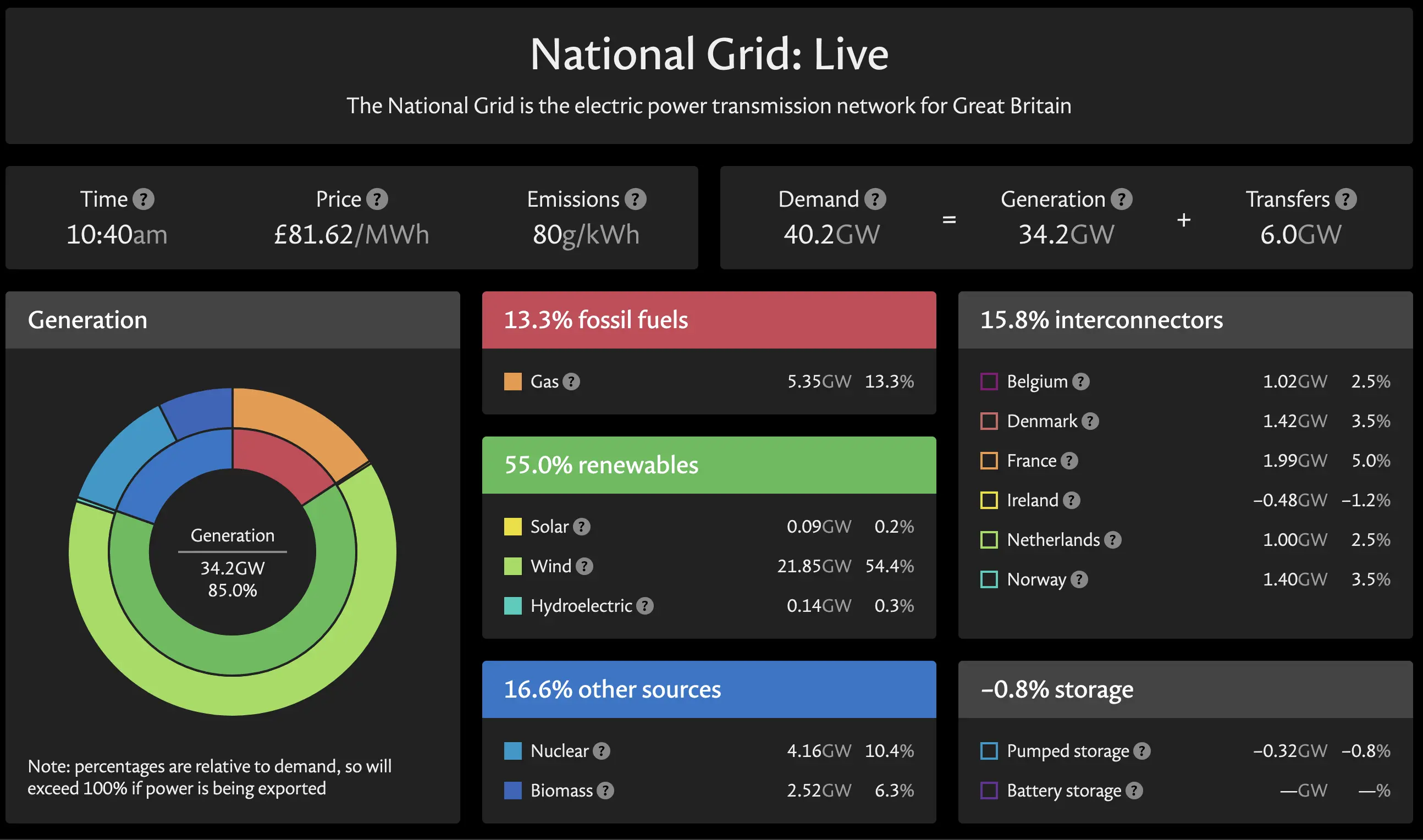UK Energy
207 readers
12 users here now
A place to post links and discussions around the UK's energy production, National Grid, energy consumption, and green energy news.
See https://grid.iamkate.com/ for the UK's current energy production and sources.
Created 23/07/23
founded 2 years ago
MODERATORS
1
2
7
Energy Dashboard - real time and historical GB electricity data, carbon emissions and UK generation sites mapping
(www.energydashboard.co.uk)
3
4
5
6
7
8
9
10
11
1
UK’s smart meter targets leaving energy users short-changed, says Martin Lewis
(www.theguardian.com)
12
12
High court blocks Cumbria plan for UK’s first new deep coalmine in 30 years
(www.theguardian.com)
13
15
UK government to buy electricity system operator from National Grid for £630m
(www.theguardian.com)
14
15
16
17
18
19
17
Biomass power station produced four times emissions of UK coal plant, says report
(www.theguardian.com)
20
11
'Ultra-cheap energy for every household': could a different kind of tariff change everything?
(www.theguardian.com)
21
29
‘There’ll be no countryside left’: Opposition to pylons puts UK carbon targets at risk
(www.theguardian.com)
22
23
24
6
The Guardian view on GB Energy: a good idea turns up just in time | Editorial
(www.theguardian.com)
25
16
Labour told it will need to defeat ‘net-zero nimbys’ to decarbonise Britain
(www.theguardian.com)
view more: next ›


